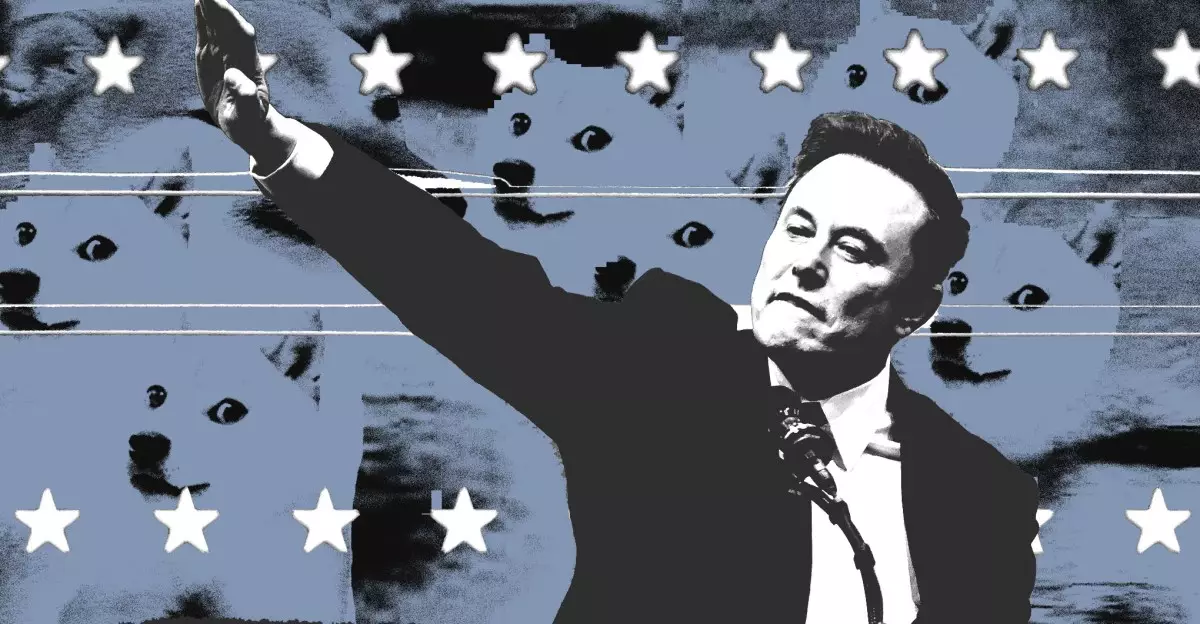In a startling revelation, Marko Elez, a young staffer for the Department of Government Efficiency (DOGE), became a focal point of public outrage after his controversial social media activity was uncovered. Reports indicated that Elez had previously advocated for extreme ideologies, such as a “eugenic immigration policy” and the abolition of the Civil Rights Act, which sent shockwaves through the political landscape. This turn of events raises significant questions about the implications of radical ideologies gaining traction in political spheres, especially within governmental agencies.
The specific social media account in question, which has since been deleted, drew attention for its inflammatory posts. For example, one particularly troubling post dismissed the legitimacy of Indian H-1B visa holders by suggesting they would soon be replaced by Artificial Intelligence—an assertion that highlighted both xenophobia and an alarming undercurrent of technological determinism. These statements illustrate a wider issue within segments of the tech-right community, which has increasingly adopted a combative stance on immigration issues.
The Implications of Ideological Integration in Government
Elez’s resignation from his position at DOGE, a department established to streamline government functions under the leadership of Elon Musk, underscores a disturbing trend: the blending of extremist beliefs with public service. The staff’s mission, initially portrayed as apolitical, has taken a decidedly ideological turn, focusing on dismantling diversity, equity, and inclusion (DEI) programs within the federal government. This has incited an ideological war against what some perceive as a “woke” agenda, resulting in significant funding cuts to critical government programs.
What this incident reveals is not only a personal failing but also a systemic issue within government employment. The hiring practices within the current administration seem to disproportionately favor individuals with far-right views. This raises ethical questions about the standards for public service and the potentially damaging effects of partisan ideology on government operations.
As outlined by various news outlets, this isn’t an isolated case. Elez’s resignation follows a pattern of similar incidents, where individuals in government ties to extremist ideologies were either forced out or, in some instances, retained despite their blatant racism and prejudice. Such patterns beg the question: is the current political climate fostering an environment where extremist ideologies can flourish within governmental structures?
The Broader Cultural Impact
Elez’s case is not just a singular event but rather part of a broader cultural phenomenon contributing to what writer John Ganz describes as the “groyperfication” of young conservatives. This term encapsulates the shift towards openly discussing and promoting extreme views—views that rarely see the light of day in conventional political discourse. The presence of individuals like Elez and Darren Beattie, who openly assert their belief in the supremacy of “competent white men,” suggests a troubling normalization of such extremist thought processes.
Interestingly, these individuals frequently utilize social media platforms to disseminate their views, creating an echo chamber that legitimizes their beliefs among their followers. The alarming rise of ideologically-driven rhetoric around race and immigration shows the potential for misinformation and radical ideas to coalesce into a movement seeking to undermine foundational civil rights.
The exposure of Marko Elez’s extremist online behavior has opened a necessary dialogue about the intersection of government ethics and ideological extremism. As radical views continue to leak into governmental roles, society must hold its representatives accountable. It underscores the importance of vigilance in monitoring the qualifications and beliefs of those who serve in public office, working towards preventing the infiltration of extremist ideologies into the mechanisms of government.
Ultimately, it begs society to reflect critically on its political sphere: how do we navigate the delicate balance of free speech while upholding the tenets of equality and justice that underpin our society? As this narrative unfolds, it becomes increasingly evident that activism against radical ideologies must not only persist but intensify to ensure a more equitable government for all.


Leave a Reply